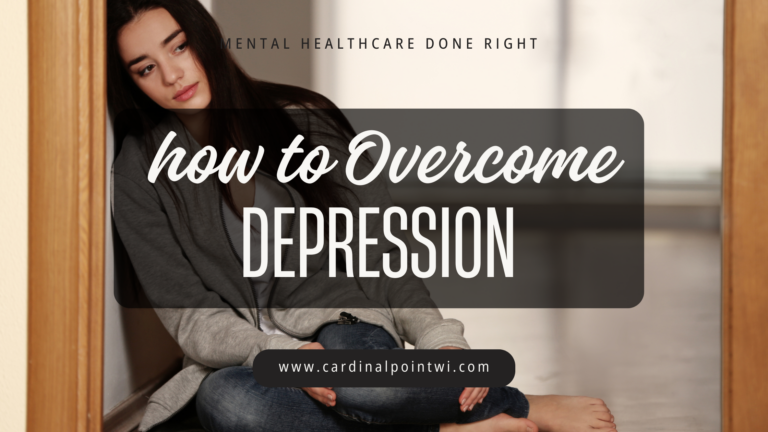Depression is a complex and challenging mental health condition that can affect all aspects of your life, from your relationships to your physical health. It’s normal to feel sad or down occasionally, but when these feelings persist for weeks or months, it’s essential to seek professional help. Therapy is one of the most effective treatments for depression, and it can provide you with the support and skills needed to regain control of your life. If you’re in Wisconsin and struggling with depression, here’s how therapy can help you overcome it.
1. Understanding the Root Causes of Your Depression
Depression isn’t just about feeling sad—it’s a multifaceted condition that can stem from a variety of factors, including past trauma, life stressors, or chemical imbalances in the brain. A therapist will take the time to understand your unique experiences and help you uncover the root causes of your depression. By addressing these underlying issues, you can begin to heal and work toward lasting emotional recovery. Understanding what triggers your depression can be the first step toward managing it more effectively.
2. Cognitive Behavioral Therapy (CBT) for Depression
One of the most evidence-based therapies for depression is Cognitive Behavioral Therapy (CBT). CBT focuses on identifying negative thought patterns and replacing them with healthier, more realistic ways of thinking. Depression often causes people to view the world, themselves, and the future in a negative light, which perpetuates feelings of hopelessness. Through CBT, you can learn to challenge these negative thoughts and replace them with more positive, constructive ones. By changing your thinking, you can change how you feel and begin to take positive steps toward recovery.
3. Building Coping Mechanisms for Stress
Life can be stressful, and when you’re already battling depression, it can feel even harder to cope with everyday challenges. Therapy can help you build a toolbox of coping mechanisms that can assist you in managing stress, negative emotions, and difficult situations. Whether it’s practicing mindfulness, learning deep breathing exercises, or incorporating more structure into your day, therapy can help you create a system of strategies that work for you.
4. Healing from Past Trauma
Depression is often linked to unresolved trauma or emotional pain from the past. Whether it’s childhood trauma, loss, or betrayal, these unresolved feelings can manifest as depression in adulthood. Therapy provides a safe and supportive space to explore these past experiences, process difficult emotions, and begin to heal. By working through your trauma with a therapist, you can start to let go of the emotional weight that’s been holding you back and move toward emotional freedom.
5. Establishing a Personalized Treatment Plan
Depression affects everyone differently, which is why a personalized approach is essential for effective treatment. Your therapist will work with you to create a treatment plan that’s tailored to your specific needs. This may involve individual therapy, group therapy, or a combination of both. Your treatment plan will also include measurable goals to track your progress, ensuring that you’re moving in the right direction toward recovery.
6. Providing Ongoing Support and Accountability
Recovery from depression isn’t a one-time event—it’s a process. Having ongoing support from a therapist helps you stay on track and maintain momentum in your recovery. Your therapist will offer continuous encouragement, help you navigate setbacks, and celebrate your successes. This ongoing support ensures that you’re never alone on your journey to better mental health.
If you’re in Wisconsin and struggling with depression, therapy can offer you the tools, support, and guidance you need to overcome it. You don’t have to face depression alone—reach out today and start your path to healing.






